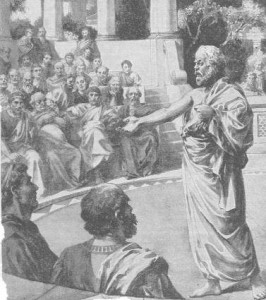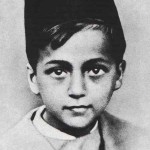We all (sort of) know the famous “unexamined life” quote of the ancient Greek sage. I was glad recently to read it in context, as he offers a defiant self-defence against his accusations of sedition and corrupting the young. It goes like this:
“Perhaps someone may say, ‘But surely, Socrates, after you have left us you can spend the rest of your life quietly minding your own business.’ This is the hardest thing of all to make some of you understand. If I say…I cannot ‘mind my own business’, you will not believe I am serious. If on the other hand I tell you that to let no day pass without discussing goodness and all the other subjects about which you hear me talking, and that examining both myself and others is really the very best thing that a man can do, and that life without this sort of examination is not worth living, you will be even less inclined to believe me. Nevertheless, gentlemen, that is how it is.”
Socrates, Athenian stonemason (maybe), teacher (possibly) and public irritant (almost certainly), c. 469 BC – 399 BC. Quoted in John Ralston Saul’s The Unconscious Civilization, p. 71.



